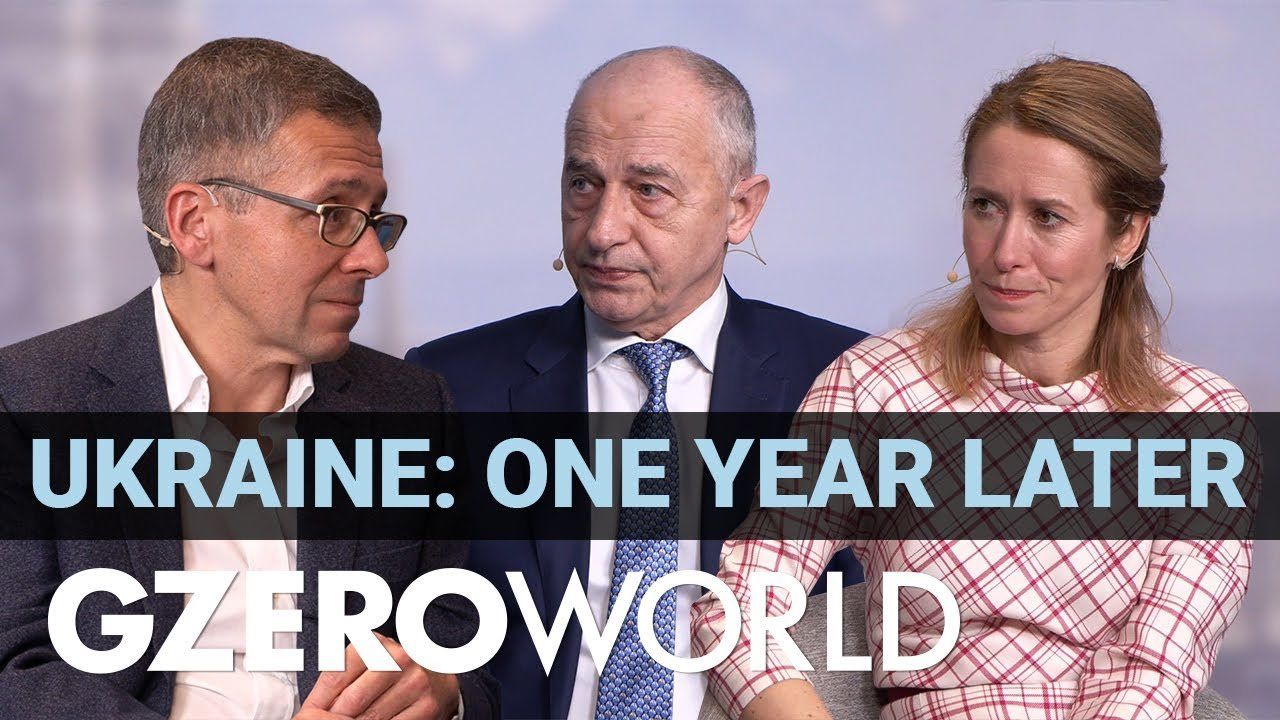GZERO World with Ian Bremmer
NATO unity & how to end war in Ukraine

NATO unity & how to end war in Ukraine | GZERO World with Ian Bremmer

What a difference a year makes. As the world marks the first anniversary of the war in Ukraine, Zelensky's military has performed far better against Russia than even some of its staunchest supporters expected when the war began. And Putin's illegal invasion of a sovereign neighbor has rallied the West to Kyiv's cause.
Ian Bremmer is on the ground in Germany for the annual Munich Security Conference to ask world leaders how much further the West is willing to go in its support for Ukraine.
Estonia’s Prime Minister Kaja Kallas has been called Europe’s new Iron Lady, and says no Russian war crime should go unpunished. And NATO’s Deputy Secretary General Mircea Geoană offers a candid assessment of a war that has no clear end in sight. Ian speaks to them both.
Watch "GZERO World with Ian Bremmer" on public television stations across the US. Check local listings.
With the US leading production and China driving new reactor development, Bank of America breaks down the who, what, where, when, and why behind nuclear’s return. Stay ahead of global energy trends with Bank of America Institute.
Chris, an Army veteran, started his Walmart journey over 25 years ago as an hourly associate. Today, he manages a Distribution Center and serves as a mentor, helping others navigate their own paths to success. At Walmart, associates have the opportunity to take advantage of the pathways, perks, and pay that come with the job — with or without a college degree. In fact, more than 75% of Walmart management started as hourly associates. Learn more about how over 130,000 associates were promoted into roles of greater responsibility and higher pay in FY25.
Last week, at the Munich Security Conference, a group of global technology providers, including Microsoft, announced the Trusted Tech Alliance — committed to shared, verifiable principles for trusted, transparent, and resilient technology across borders. At a moment of economic volatility and zero-sum technological competition, countries and customers are demanding greater accountability from technology providers. The Alliance addresses this by bringing together companies from across Africa, Asia, Europe, and North America around shared commitments: transparent governance, secure development practices, supply chain oversight, open digital ecosystem, and respect for the rule of law — ensuring the benefits of emerging technologies strengthen public trust while driving job creation and economic growth. Explore the Trusted Tech Alliance here.